Urgent Dental Care You Can Rely On
It’s always smart to have an emergency plan in place before an actual emergency happens, and this is especially true for unexpected issues that concern your teeth, as taking the right actions can make the difference between saving or losing a tooth! Should an awful toothache or broken tooth ever surprise you, make sure you have Dr. Shwarts’ number in your phone. He’s happy to accept emergency patients, and he can even see people on the same day as their call so they never have to be left waiting in pain. When you need dental care right away, you can always count on him!

Why Choose Shwarts Family Dentistry in Dallas for Emergency Dental Care?
.01
Same-Day Appointments Welcome
.02
Friendly Team that Welcomes All Patients
.03
Flexible Payment Options That Work for Any Budget

HOW WE TREAT DENTAL EMERGENCIES
- The sooner you get in touch with our practice, the sooner you can get your dental emergency resolved and out of dental discomfort. We’ll do our best to get you seen the same day that you call and even offer Friday visits when you schedule by appointment. When you call, our office will provide you with first-aid tips to manage your symptoms ahead of your visit.
- After you arrive at the office, Dr. Shwarts will carefully examine the area of your mouth that you’re concerned about. If necessary, he’ll capture detailed digital X-rays if the problem is not easily visible.
- Our team will then work on a treatment plan that addresses your dental emergency at its source and prevents it from coming back. This may include treatments like dental fillings, root canal therapy, tooth extractions, or another service if needed to get you out of pain.
THE MOST COMMON DENTAL EMERGENCIES
When it comes to dental emergencies, having an emergency dentist like Dr. Shwarts on call is extremely important, but what should you do if you can’t reach his dental office right away? There are proven methods that can help reduce pain and damage to your smile until you arrive. Even if you aren’t sure you’re experiencing a dental emergency, you should still call and try to come see us as soon as you can!
Is my toothache a dental emergency? While all tooth pain should be looked at right away, most toothaches don’t need immediate attention. However, a toothache qualifies as a dental emergency if:
- The pain is severe or has lasted for more than 24 hours
- There’s a small bump on the gums near the painful tooth
- The painful tooth is discolored or looks darker than the others
- There’s a sharp pain when you bite down or open your mouth wide
- You have symptoms of a serious infection, like swelling, fever, or fatigue
How you should handle a toothache: Try flossing around the painful tooth first, then rinse your mouth out with water. If that doesn’t help, rinse your mouth out with warm salt water, take over-the-counter pain relivers, or apply an ice pack to ease discomfort and bring down swelling. If there’s a bump on your gums, don’t attempt to pop it.
How we treat toothaches: The best treatment for your toothache will depend on what’s causing it. The most common cause is a cavity or decay, which could be treated with a filling or antibiotics. If the tooth is infected or damaged, you may need a dental crown, root canal therapy, or a tooth extraction. There are many other causes and treatments for toothaches as well, so we will need to evaluate you first to determine the best way to alleviate your pain.
Is a chipped tooth a dental emergency? While most chipped teeth don’t need immediate attention, it’s essential that they’re treated right away to prevent further damage and infection.
How you should handle a chipped tooth: First, rinse your mouth out with water to clear away bacteria and wash out any fragments of your tooth. If you can find the broken-off part of your tooth, collect it and keep it in a clean container. Then, focus on protecting your tooth by refraining from using it to bite or chew. If you begin to notice sensitivity in the tooth, you can cover it with dental wax or sugarless gum.
How we treat chipped teeth: Sometimes, we may be able to recement a broken-off part of your tooth back into place with composite resin. In most cases however, we will simply fill in the damaged area of your tooth with dental bonding, which will look just like a natural part of your enamel. If you’ve chipped a front tooth, we may recommend a veneer for truly optimal aesthetics.
Is a cracked tooth a dental emergency? Whether a crack is big or small, it needs to be addressed as quickly as possible to keep the damage from getting worse and to protect the pulp of the tooth from infection.
How you should handle a cracked tooth: To keep your tooth safe until you can reach us, rinse with water regularly to clear away bacteria. Do not chew on the injured side of your mouth, and avoid eating if you can. If you must eat something, only eat soft foods. If needed, you can manage swelling and discomfort with an ice pack or over-the-counter pain relivers.
How we treat cracked teeth: Very minor cracks in the teeth may be easily repaired with dental bonding. However, most cracked teeth will need a dental crown to restore its appearance and function. In severe cases where a tooth is too damaged to be repaired, we may need to extract it and discuss replacement options.
Are very sensitive teeth a dental emergency? When the deeper layers of your enamel or the tooth roots become exposed, you may start to notice tooth sensitivity. While mild sensitivity is not a dental emergency and can be managed by making some changes to your habits (i.e. gentler brushing, reducing use of teeth whitening products, diet changes, etc.) it could turn into a dental emergency if the sensitivity becomes severe or long-lasting, turns into pain, or affects one or two teeth. This could be a sign that a deep cavity, gum recession/disease, or infection is present.
How you should handle sensitive teeth: Call our office so we can determine whether you should come in immediately or the next business day. Drink lukewarm water in the meantime and avoid highly acidic, spicy, or sweet foods. Take OTC painkillers as needed.
How we treat tooth sensitivity: Depending on the cause, we may recommend desensitizing toothpastes, a prescription mouthwash, or a topical fluoride treatment, especially if you only have weakened or eroded enamel. Alternatively, antibiotics, gum disease treatment, or root canal therapy may be suggested to treat the underlying causes of your sensitivity or pain.
Is a knocked-out tooth a dental emergency? When a tooth is knocked out, it is absolutely a dental emergency that should be attended to as soon as possible. If you do not act quickly to have this issue resolved, you risk losing the tooth entirely and inevitably require a tooth replacement to make your smile complete. Call our office right away and we’ll do everything we can to get you seen within the hour.
How you should handle a knocked-out tooth: Locate the tooth and avoid touching the root. Pick it up by the crown portion and gently rinse it under cool water. Do not remove any tissue still attached. Try to place the tooth back into your open socket. If not possible, place it into a container of milk or saline solution. This will keep the tooth preserved for up to one hour. You can also use an ADA-approved tooth preservation kit.
How we treat knocked-out teeth: If the tooth is still viable, there’s a chance that we may be able to reimplant it back into your mouth. From there, it can slowly integrate back into your bone and soft tissue. If it cannot be saved, we will recommend tooth replacement options instead (such as dental bridges, dentures, or dental implants).
Is a lost filling or crown a dental emergency? Dental restorations are not meant to last forever, which means they can become too weak and need to be replaced. Without treatment, they can eventually break or fall off, exposing your natural tooth and putting you at risk of cavities or a dental infection. While a loose filling or crown may not be urgent, you should still give us a call the moment it occurs.
How you should handle a lost filling or crown: If a filling comes out, you may be able to temporarily fill the exposed portion of your tooth with filling material to protect it from bacteria. For dental crowns that come loose, use either dental cement, denture adhesive, or sugar-free chewing gum (last resort only) to keep it temporarily reseated.
How we treat lost fillings or crowns: Dental fillings will generally need to replaced in most cases. However, if you still have the crown and it is mostly intact, we may be able to reseat it for you. If it’s too damaged or it has been lost, we’ll get you a replacement crown.
Is a broken denture a dental emergency?: Wearing a denture that is broken can harm your gums, soft tissues, jaws, and any remaining teeth, which is why you should call us right away if yours becomes damaged in any way. In the event the base or teeth of your denture are broken, we want to help you get it repaired as soon as possible to avoid any future complications.
How to handle a broken denture: After calling our office and explaining the details regarding your broken denture, we recommend that you avoid using it for the time being. Do not try to fix the denture on your own as it could damage the denture further. Stick to soft foods until you get to our office.
How we treat broken dentures: The treatment we recommend depends on the severity of the damage. For example, composite resin could be used to fill small chips and cracks but in other cases the denture may need a readjustment to fit properly. If the denture cannot be fixed, we will get you fitted for a new one. We may also recommend implant dentures for better stability and longevity.
Are loose permanent teeth a dental emergency?: Also known as partially dislodged or extruded teeth, loose permanent teeth are absolutely considered an urgent dental emergency that should be addressed immediately. If they are loose, they are at risk of falling out completely. While teeth can become loose due to physical injury, it can also occur due to severe gum disease.
How you should handle a loose permanent tooth: If the tissue around the tooth is bleeding, gently bite down on a piece of gauze to reduce it. You can also apply a cold compress to your face for 10 minutes at a time to reduce any swelling. Avoid touching the tooth or trying to move it further with your tongue. You can also take ibuprofen to ease discomfort.
How we treat loose permanent teeth: If the tooth cannot be saved, we may need to extract it. Otherwise, we will try to splint the tooth so that it can begin to reintegrate with the jawbone and gum tissue over time.
Is an injury to the gums, lips, or tongue a dental emergency?: Cuts to the mouth are more common while playing physical sports without a mouthguard. However, cuts can also occur when simply eating, especially to the lips and tongue. If your bleeding does not stop, go to the emergency room. If you can get the bleeding to stop, give our office a call.
How you should handle an injury to the gums, lips, or tongue: Gently rinse the area with cold water and apply pressure to the cut with a clean washcloth or gauze if available until bleeding stops. You can also apply a cold compress to reduce swelling and discomfort.
How we treat injuries to the gums, lips, or tongue: Our team can stitch wounds closed and help you keep the area clean. However, wounds that do not stop bleeding when applying pressure for at least 10 minutes should be addressed at an emergency room first.
Is jaw pain a dental emergency?: Jaw pain can put a damper on your day-to-day, but it’s not necessarily a dental emergency. However, you should give us a call as it can lead to serious dental emergencies later, including cracked or chipped teeth.
How you should handle jaw pain: Give us a call to get first-aid tips on how to manage your jaw pain. This generally includes taking pain relivers and applying a cold compress to your jaw joints. If you believe your jaw is broken or dislocated, go to the emergency room, then call our office back.
How we treat jaw pain: To prevent future damage to the jaw, we’ll confirm if you have undiagnosed bruxism (or unconscious teeth grinding and clenching). Alternatively, you may need your wisdom teeth removed if they are impacted and/or causing you pain.
If something is stuck between your teeth and you are struggling to get it out with dental floss alone, give our office a call so we can help. Do not attempt to use tweezers, toothpicks, or anything else that is sharp to remove the debris. This can easily lead to you accidentally injuring your soft tissues or enamel. You can also try rinsing your mouth out with water to loosen the foreign object.
NITROUS OXIDE SEDATION DENTISTRY
Nitrous oxide is ideal for patients who just need a little help to “take the edge off” of their dental nerves. This sedation option is sometimes called “laughing gas” because it helps patients feel relaxed, at-ease, and happy. It’s also the lightest form of sedation and well-suited for a wide variety of patients of all ages, which makes it a popular choice. Nitrous oxide sedation is safe, effective, and easy to use for almost anyone who needs a bit of extra help relaxing in the examination chair.
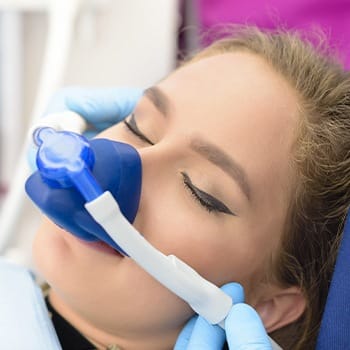

If you’ve knocked out a tooth and do not make it to our dental office in time to save it, you’ll likely need to plan for discussions surrounding tooth replacement. However, if another patient comes in because of a toothache that will not go away, these two dental emergencies will have drastically different outcomes. As a result, you cannot expect to pay a set price for treatment. Because every patient is different, as is every case, our team will need to thoroughly examine your mouth before determining how much you can expect to pay to fix your smile.
Most commonly, however, dental emergency patients can expect treatments to include everything from antibiotics, root canal therapy, dental crown placement, or even tooth extraction.

It is not uncommon for most dental insurance companies to pay for emergency dental care. While they may not cover the full amount, they will likely pay for a portion of the total cost. However, some plans do offer one emergency visit each year, so make sure to check with your insurance company to find out any rules and exceptions. But no matter how your insurer chooses to handle your emergency visit, make sure to ask about their percentage of coverage. Depending on the type of treatment you’ll receive, you can expect them to cover anywhere from 50-80% of the total cost.
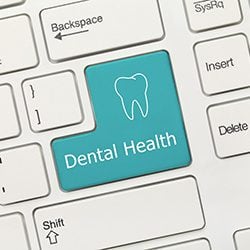
If you are uninsured or need help paying for more complex dental care, the team at Shwarts Family Dentistry in Dallas is pleased to provide our patients with a VIP In-House Plan that provides exceptional dental care for one low, flat fee. Offering many of the same great benefits as a normal dental insurance plan, you can skip the deductibles, annual maximums, and waiting periods.
If you have insurance but are looking to break up your out-of-pocket expenses, you can also enroll in flexible financing through our dental office. We can set up a payment plan that ranges from 6 to 36 months to help you stay within your budget.
Our team at Shwarts Family Dentistry in Dallas wants to provide the immediate care you need by recommending treatments that are high in quality and affordable. If you are looking for an emergency dentist in Dallas you can trust, contact us today to schedule an appointment.

Teeth that are knocked out or chipped during a football game or after falling off your bike are not necessarily avoidable. A severe toothache that is the result of poor oral hygiene, however, can most certainly be prevented. This is why it is imperative that you take proper care of your teeth and gums by practicing good oral hygiene habits at home.
Many of the most common dental emergencies can be attributed to how well you’ve maintained your smile. If brushing, flossing, and rinsing are not a normal part of your daily routine, it’s time to make a significant change if you want to avoid costly dental procedures that involve invasive treatment and long recovery times.
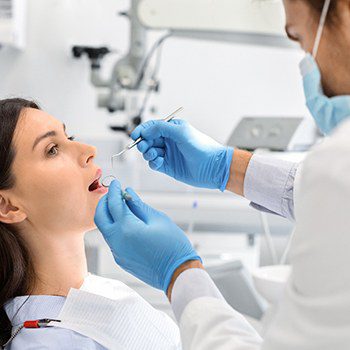
HOW TO PREVENT DENTAL EMERGENCIES
Want to avoid a sudden toothache or mouth injury that brings your day to a screeching halt? While you can’t always prevent dental emergencies in Dallas, you can take some precautions to safeguard your oral health. From keeping up with your routine checkups to staying on top of your at-home oral hygiene, you can greatly reduce the risk of harmful incidents jeopardizing your smile. Below are a few simple tips for avoiding dental emergencies:
If you’re like most people, you’d rather see the dentist at your regularly scheduled checkups than shift all of your plans around to schedule a last-minute appointment when an emergency occurs. Visiting us twice a year for a checkup and cleaning can stop potential emergencies in their tracks. Not only can Dr. Shwarts diagnose and treat cavities, infections, and other problems early on, but our hygienists can clean the plaque from your teeth that causes these issues in the first place.

Of course, you’ll also need to keep your mouth clean in between appointments. Brushing twice a day and flossing every evening should be enough to prevent plaque from building up on your teeth and gums. For added protection, you could also rinse with an antibacterial mouthwash to target areas of your mouth that your toothbrush or floss cannot access.
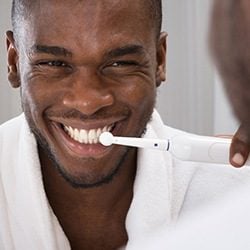
You’ve probably been hearing that candy causes cavities since you were very young, but did you know that starchy foods like potato chips do too? Starch breaks down into sugar in your mouth, where it becomes fuel for destructive bacteria that erode your tooth enamel and inflame your gums. Consider switching your sugary or starchy snacks for more teeth-friendly alternatives, like leafy greens or calcium-rich dairy products.

Do you enjoy playing sports? No matter your age, chosen game, or level of play, make sure your smile stays protected by always wearing a mouthguard. After all, up to 40% of all dental injuries are sports-related! Similarly, you should wear a protective nightguard if you suffer from a condition called bruxism, or chronic nighttime teeth grinding that can wear down your teeth. While you can often find mouthguards at your local pharmacy, our practice can make custom trays that are more comfortable and effective.
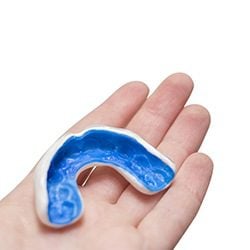
You may think you’re saving time by just using your teeth to open a package instead of a box cutter, knife, or pair of scissors. However, you could easily break a tooth, cut your gums, or sustain some other type of injury that would require you to visit our emergency dental office in Dallas. If you truly want to save time (and money!) that would otherwise be spent on urgent dental care, take the time to reach for the ideal tool for the job.
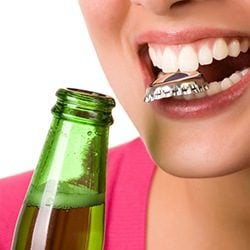
DENTAL EMERGENCY FAQ’S
If you’re unsure of what to do during a dental emergency, the first step you should take is always call your emergency dentist in Dallas. Our team will guide you through any necessary first-aid tips and make sure that you don’t sustain any additional oral damage. For your convenience, we’ve answered some common questions we receive from our patients below.

Patients are often too nervous to call our office because they aren’t sure whether their issue will disappear on its own or not. The downside to this frame-of-mind is that when you leave a small problem to progress, you’re risking permanent oral damage that can be painful and more costly to treat. A good way to know whether you need urgent dental care is to ask yourself the following questions. If you answer “yes” to any of them, be sure to contact our office immediately:
- Do you have a broken or chipped tooth?
- Have you lost feeling in your tooth or gums?
- Do you taste metal in your mouth?
- Do you have an oral sore that hasn’t healed in two weeks or longer?
- Are you experiencing a severe toothache that won’t go away?
- Are your gums swollen?
- Is a permanent tooth loose or swollen?
Typically, if you feel like something is wrong or out-of-the-ordinary, then it is. When you contact our office, we’ll be able to let you know if you need to come in immediately and provide you with first-aid guidance to help ease your pain.
Certain emergencies require immediate medical attention before you’re able to visit your emergency dentist in Dallas. Any type of trauma such as jaw fractures, a dislocated jaw, deep facial lacerations, or any issue that’s impacting your ability to easily swallow or breathe, all require a trip to your emergency room. After you’ve received the urgent medical attention necessary, don’t forget to contact our office so we can repair your smile and make sure you’re not at risk for developing oral health problems down the road!
A good way to be prepared in case of a dental emergency is to make a couple kits to keep at your home, work, or in your car. Even if you’re on your way to your emergency dentist, having certain supplies can be handy to help ease your pain or prevent any additional damage from occurring. Here are some items that you’ll want to include in your kits:
- Latex-free gloves
- Over-the-counter pain medication (like ibuprofen)
- Dental floss
- Denture adhesive
- Gauze pads
- A small container that can seal
- The number of your emergency dentist

